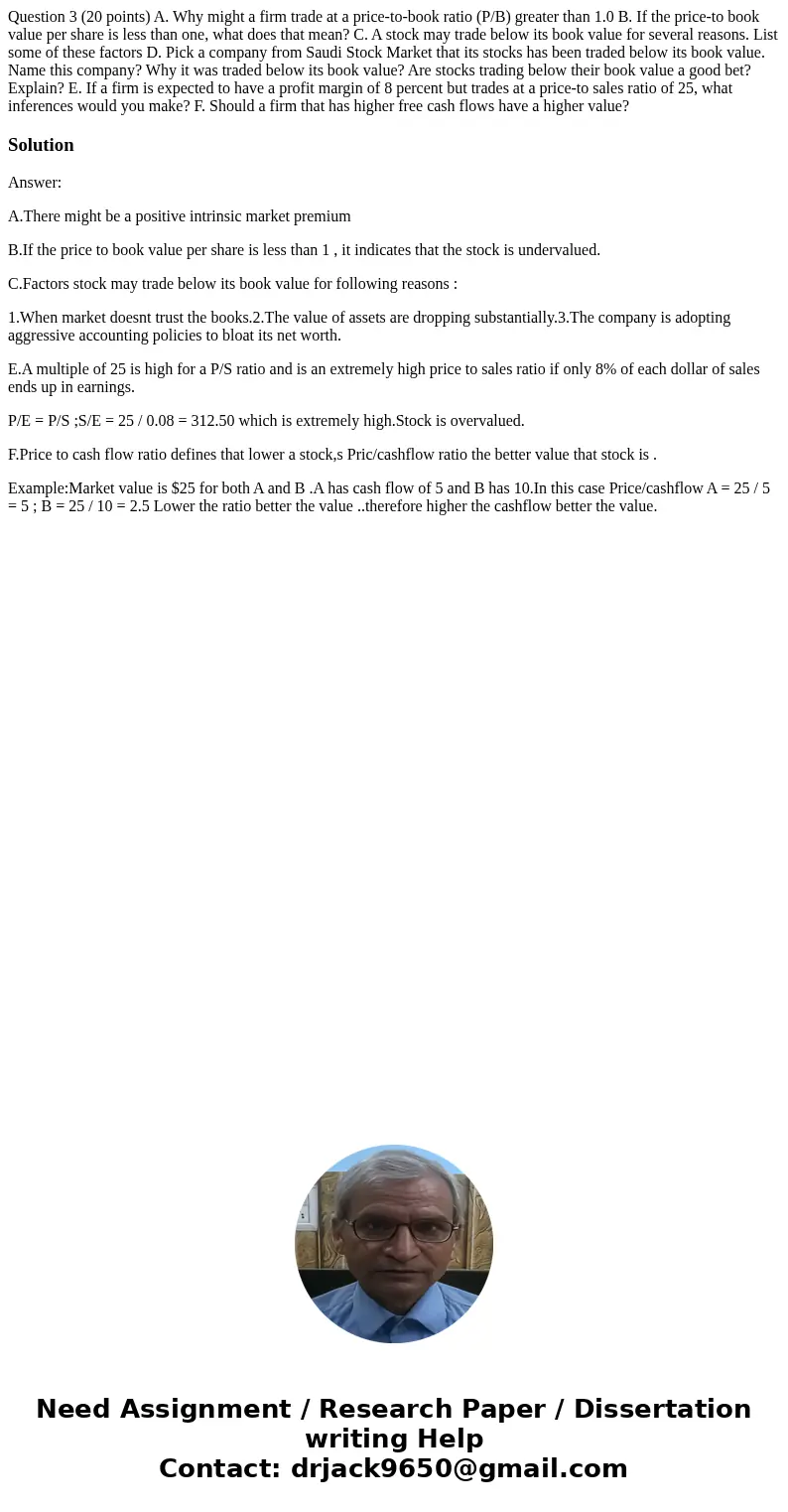Question 3 20 points A Why might a firm trade at a pricetobo
Solution
Answer:
A.There might be a positive intrinsic market premium
B.If the price to book value per share is less than 1 , it indicates that the stock is undervalued.
C.Factors stock may trade below its book value for following reasons :
1.When market doesnt trust the books.2.The value of assets are dropping substantially.3.The company is adopting aggressive accounting policies to bloat its net worth.
E.A multiple of 25 is high for a P/S ratio and is an extremely high price to sales ratio if only 8% of each dollar of sales ends up in earnings.
P/E = P/S ;S/E = 25 / 0.08 = 312.50 which is extremely high.Stock is overvalued.
F.Price to cash flow ratio defines that lower a stock,s Pric/cashflow ratio the better value that stock is .
Example:Market value is $25 for both A and B .A has cash flow of 5 and B has 10.In this case Price/cashflow A = 25 / 5 = 5 ; B = 25 / 10 = 2.5 Lower the ratio better the value ..therefore higher the cashflow better the value.

 Homework Sourse
Homework Sourse